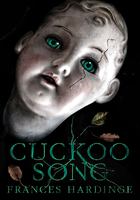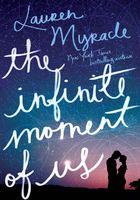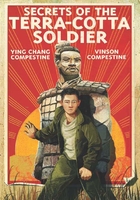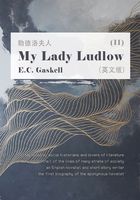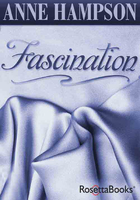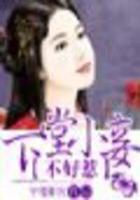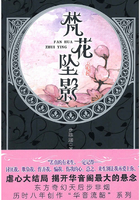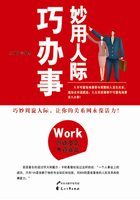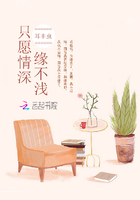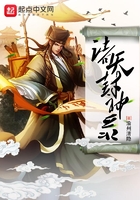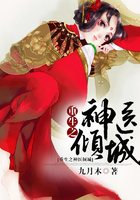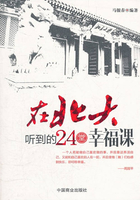To Dylan, my nephew and godson.
May you always regard the world's follies with the same mellow calm.
HER HEAD HURT. THERE WAS A SOUND GRATING against her mind, a music-less rasp like the rustling of paper. Somebody had taken a laugh, crumpled it into a great, crackly ball, and stuffed her skull with it. Seven days, it laughed. Seven days.
"Stop it," she croaked. And it did. The sound faded away, until even the words she thought she had heard vanished from her mind like breath from glass.
"Triss?" There was another voice that sounded much louder and closer than her own, a woman's voice. "Oh, Triss, love, love, it's all right, I'm here." Something was happening. Two warm hands had closed around hers, as if they were a nest.
"Don't let them laugh at me," she whispered. She swallowed, and found her throat dry and crackly as bracken.
"Nobody's laughing at you, darling," the woman said, her voice so hushed and gentle it was almost a sigh.
There were concerned mutterings a little farther away. Two male voices.
"Is she still delirious? Doctor, I thought you said—"
"Just an interrupted dream, I think. We'll see how young Theresa is when she has woken up properly."
Theresa. I'm Theresa. It was true, she knew it, but it just felt like a word. She didn't seem to know what it meant. I'm Triss. That seemed a bit more natural, like a book falling open on a much-viewed page. She managed to open her eyes a little, wincing at the brightness. She was in bed, propped up on a mound of pillows. It felt as if there was a vast expanse of her, weighted down with rocks, and it was a surprise to see herself stretched out as a normal-sized lump under the counterpane and blankets.
There was a woman seated beside her holding her hand gently. The woman's dark hair was short and arranged close to her head, molded into stiff, gleaming, crinkly waves. A faint flouring of face powder dusted over her cheeks, muffling the tired lines at the corners of her eyes. The blue glass beads of the woman's necklace caught the light from the window, casting frosty glints onto the pale skin of her neck and the underside of her chin.
Every inch of the woman was achingly familiar and yet strange, like a map of a half-forgotten home. A word drifted down from nowhere, and Triss's numb mind managed to catch at it.
"Muh …" she began.
"That's right, Mommy's got you, Triss."
Mommy. Mother.
"Muhm … muh …" She could manage only a croak. "I … I don't …" Triss trailed off helplessly. She didn't know what she didn't, but she was frightened by how much she didn't.
"It's all right, froglet." Her mother gave her hand a little squeeze and smiled softly. "You've just been ill again, that's all. You had a fever, so of course you feel rotten and a bit muddled. Do you remember what happened yesterday?"
"No." Yesterday was a great, dark hole, and Triss felt a throb of panic. What could she actually remember?
"You came home sopping wet. Do you remember that?" The bed creaked as a man came and sat on the other edge of it. He had a long, strong sort of face, with creases between his brows as if he was concentrating on everything very hard, and his hair was a tired blond. His voice was gentle, though, and Triss knew that she was getting his special kind look, the one only she ever received. Father. "We think you must have fallen into the Grimmer."
The word "Grimmer" made Theresa feel cold and shuddery, as if somebody had pressed frogskin against her neck. "I … I don't remember." She wanted to squirm away from the thought.
"Don't press her." There was another man standing at the foot of the bed. He was older, with a combed haze of colorless hair curving half an inch over his pink scalp, and gray tufty eyebrows that went everywhere. The veins on his hands had the bulgy, puddingy look that spoke of advanced years. "Children will play by water, it's what they do. Goodness knows I tumbled into enough streams when I was young. Now, young lady, you put your parents into a fine fright, wandering in last night with a towering fever, not knowing who they were. I suppose you know them well enough now?"
Triss hesitated and nodded her heavy head. She knew their smells now. Pipe ash and face powder.
The doctor nodded sagely and tapped his fingers on the foot of the bed. "What's the name of the king?" he rapped out sharply.
Triss jumped and was flustered for a moment. Then a recollection of childish schoolroom chanting swam obediently into her head. One Lord is King, One King is George, One George is Fifth …
"George the Fifth," she answered.
"Good. Where are we right now?"
"The old stone house, at Lower Bentling," Triss answered with growing confidence. "With the kingfisher pond." She recognized the smell of the place—damp walls, plus the fading scent of three generations of old, sick cats. "We're here on holiday. We … we come here every year."
"How old are you?"
"Thirteen."
"And where do you live?"
"The Beeches, Luther Square, Ellchester."
"Good girl. That's a lot better." He gave a wide, warm smile as if he was genuinely proud of her. "Now, you've been very ill, so I expect your brain feels as if it's full of cotton wool at the moment, doesn't it? Well, don't you panic—over the next couple of days all your wits will come home, I dare say, dragging their tails behind them. You're feeling better already, aren't you?"
Triss slowly nodded. Nobody was laughing in her head now. There was still a faint, irregular rustle, but looking across the room at the window opposite, she could easily see the culprit. A low-hanging branch was pressed against the pane, weighed down by clusters of green apples, leaves scuffling against the glass every time the wind stirred it.
The light that entered was shattered, shifting, broken into a mosaic by the foliage. The room itself was as green as the leaves. Green counterpane on the bed, green walls with little cream-colored diamonds on them, fussy green square-cornered cloths on the black wood tables. The gas was unlit, the white globes of the wall lamps dull and lightless.
And it was only now, when she looked around properly, that she realized that there was a fifth person in the room, lurking over by the door. It was another girl, younger than Triss, her hair dark and crimped so that she almost looked like a miniature version of Mother. But there was something quite different in her eyes, which were cold and hard like those of a thrush. She gripped the door handle as if she wanted to twist it off, and her narrow jaw was moving all the while, grinding her teeth.
Mother glanced over her shoulder to follow Triss's gaze.
"Oh, look, there's Penny come to see you. Poor Pen—I don't think she's eaten a thing since you got ill, for fretting about you. Come on in, Pen, come and sit next to your sister—"
"No!" screamed Penny, so suddenly that everybody jumped. "She's pretending! Can't you see? It's fake! Can't any of you tell the difference?" Her gaze was fixed on Triss's face with a look that could have splintered stone.
"Pen." There was a warning in their father's voice. "You come in right now and—"
"NO!" Pen looked mad and desperate, eyes wide as if she might bite someone, then tore out through the door. Rapid feet receded, echoing as they did so.
"Don't follow her," Father suggested gently, as Mother started to stand. "That's 'rewarding' her with attention—remember what they said?"
Mother sighed wearily but obediently seated herself again. She noticed that Triss was sitting with her shoulders hunched to her ears, staring toward the open door. "Don't you mind her," she said gently, squeezing Triss's hand. "You know what she's like."
Do I? Do I know what she's like?
She's my sister, Penny. Pen. She's eleven. She used to get tonsillitis. Her first milk tooth came out when she was biting somebody. She had a parakeet once and forgot to give it water and it died.
She lies. She steals. She screams and throws things. And …
… and she hates me. Really hates me. I can see it in her eyes. And I don't know why.
For a while, Mother stayed by her bedside and got Triss to help her cut out dress patterns with the big tortoiseshell-handled scissors from the sewing box that Mother insisted on bringing on holiday. The scissors snipped with a slow, throaty crunch, as if relishing every inch.
Triss knew that she had always loved pinning pattern to cloth, cutting out and then watching the fabric pieces slowly become a shape, bristling with pins and ribbed by frayed-edge seams. The patterns came with pictures of pastel-colored ladies, some in long coats and bell-shaped hats, some in turbans and long dresses that fell straight like tasseled pipes. They all leaned languorously, as if they were about to yawn in the most elegant way possible. She knew it was a treat to be allowed to help her mother with the sewing. It was the usual drill, she realized, for when she was ill.
Today, however, her hands were stupid and clumsy. The big scissors seemed impossibly heavy, and her grip on them kept slipping so that they almost seemed to twist rebelliously in her hand. After the second time that she had nearly caught her own knuckles between the blades, her mother took them back.
"Still not quite yourself, are you, love? Why don't you just read your comics?" There were well-thumbed copies of Sunbeam and Golden Penny on the bedside table.
But Triss could not concentrate on the pages before her. She had been ill before, she knew that. Many, many times. But she was sure she had never woken up with this terrible vagueness before.
What's wrong with my hands? What's wrong with my mind? She wanted to blurt it all out. Mommy, help me, please help me, everything's strange and nothing's right, and my mind feels as if it's made up of pieces and some of them are missing …
But when she thought of trying to describe the strangeness, her mind flinched away from the idea. If I tell my parents, she thought irrationally, then they'll get worried, and if they're worried, that means it's serious. But if I don't, they'll keep telling me that everything's all right, and then maybe it will be.
"Mommy …" Triss's voice came out very small. She stared at the pile of fabric pieces now lying on the bed. They looked wounded, limp and helpless. "I … I am all right, aren't I? It isn't … bad that … that I can't remember bits of our holiday, is it?"
Her mother examined her face carefully, and Triss was startled by how blue her eyes were, like the glass beads around her neck. Clear and fragile too, just like the beads. It was a kind, bright look that needed only the slightest change to become a frightened look.
"Oh, sweetheart, I'm sure it'll all come back to you. The doctor said so, didn't he?" Her mother finished pinning a seam, smiled, and stood. "Listen, I have an idea. Why don't you have a look through your diary? Maybe that will help you remember." From under the bed, Triss's mother pulled a small, faded red leather traveling case with the letters "TC" marked on one corner, and placed it on Triss's lap.
Birthday present. I know I love this case and take it everywhere. But I can't remember how the catch works. A little fiddling, however, and it clicked open.
Inside were more things that stung her memories to life, more of the pieces of being Triss. Clothes. Gloves. Other gloves in case of even colder days. A copy of the poem collection Peacock Pie. A compact, like her mother's but smaller, with a mirror in the lid but no face powder. And there, beneath them, a book bound in blue leather.
Triss pulled out her diary, opened it, and gave a small croak of shock. Half the pages in the diary had been filled with her cramped, careful scrawl. She knew that. But those pages had been torn out, leaving a fringe of frayed paper, still marked by the occasional whorl or squiggle from the lost words. After them, blank pages confronted her. Her mother came over, summoned by her cry, and simply stared for a few seconds.
"I don't believe it," Triss's mother whispered at last. "Of all the stupid, spiteful pranks … Oh, that really is the limit." She marched from the room. "Pen? PEN!" Triss heard her feet rattle up the stairs and then the sound of a handle being shaken and a door shuddering in its frame.
"What is it?" inquired her father's voice at the top of the stairs.
"It's Pen again. This time she has ripped out half of Triss's diary. And her door won't open—I think she has moved some furniture against it."
"If she wants to imprison herself, let her," came her father's answer. "She'll have to come out and face the music sooner or later. And she knows it." All of this was said clearly and loudly, presumably so that the besieged party could overhear.
Triss's mother entered the sickroom once more. "Oh, froglet, I'm so sorry. Well … perhaps she has just hidden the pages, and we can stick them back in when we find them." She sat down on the bed next to Triss, sighed, and peered into the case. "Oh dear—we had better make sure that nothing else is missing."
Other things were missing, as it turned out. Triss's hairbrush was gone, as was a photograph of her riding a donkey on the beach, and a handkerchief into which she had proudly stitched her name.
"I know you had some of them yesterday afternoon, before the accident," muttered Triss's mother. "You were filling in your diary. I helped brush your hair. Oh, Pen! I don't know why she plagues you, love."
The sight of the ripped diary had filled Triss with the same cold, squirming feeling in the pit of her stomach that the mention of the Grimmer had given her. It had frightened her, and she did not know why, or want to think about it. But it's OK, she told herself. It's just Pen being stupid and cruel.
Triss guessed that perhaps she should feel angry about it, but in truth there was something comforting and familiar about her parents being angry on her behalf. It felt like being coddled inside a horse-chestnut shell, protected by its inward downy softness, while all the spikes pointed outward. It was, her recollections whispered to her, the natural way of things.
Now, if she let her mouth droop as if she was going to cry, the whole household would spin around her to try to make things up to her … and without even quite intending it, she felt her face start to pout sorrowfully.
"Oh, Triss!" Her mother hugged her. "How about something to eat? There's some mushroom soup, the sort you like, or steak-and-kidney pie if you can manage a little. Or what about jelly? And tinned pears?" The sick puckering feeling in her stomach intensified at the thought, and Triss realized that she was ravenously hungry.
She nodded.
Triss's mother went upstairs and knocked on Pen's door in an attempt to lure her down for lunch. Even from her sickroom, Triss could hear Pen's shrill, incoherent cries of refusal.
"… not coming out … not real … you're all stupid …"
Triss's mother came down with a slight crinkle of exasperation on her brow.
"Now, that is willful, even for Pen. I have never known her to turn down food before." She looked at Triss and gave a weary little smile. "Well, at least you don't have her stubborn streak."
It turned out that Triss could more than "manage a little." As soon as she saw the first bowl of soup arrive, great crusty rolls on the side of the tray, her hands started to shake. The room around her ceased to matter. Once the tray was on her lap, she could not control herself and tore open the rolls, scattering crumbs, and pushed them into her mouth, where the wads of bread rolled drily against her tongue and champing teeth. The soup was gone as quickly as she could scoop it up, and she barely noticed it scalding her mouth. Pie, potatoes, and carrots were demolished in a frenzy, closely followed by jelly, pears, and a thick slice of almond cake. Only when she was reaching for the rest of the cake did her mother catch her wrist.
"Triss, Triss! Love, I'm so glad you have your appetite back so soon, but you'll make yourself sick!"
Triss stared back at her with bright, bewildered eyes, and gradually the room around her came back into focus. She did not feel sick. She felt as if she could have eaten a hippopotamus-sized slice of cake. Her crumb-covered hands were still shaking, but she made herself wipe them on her napkin and clasped them in her lap to stop them from snatching at anything more. As she was doing so, her father put his head around the door and caught her mother's eye.
"Celeste." His voice was deliberately calm and soft. "Can I speak to you a moment?" He flicked a glance toward Triss and gave her a small, tender smile.
Mother tucked Triss into bed, took up the tray, and left the room to follow Father, taking her warmth, reassurance, and smell of face powder with her. Within seconds of the door closing, Triss felt twinges of creeping panic return. Something in her father's tone had stirred her instincts.
Can I speak to you a moment? Outside the room, where Triss can't hear you?
Triss swallowed and pulled the covers aside, then slid herself out of bed. Her legs felt stiff but not as weak as she had expected, and she crept as quietly as she could to her bedroom door and eased it open. From there she could just about make out voices in the parlor.
"… and the inspector promised to ask some questions in the village, in case anybody saw how she came to fall into the water." Her father had a deep and pleasant voice, with a touch of hoarseness that made Triss think of rough animal fur. "He dropped by just now to speak to me. Apparently a couple of the local hands were passing near the village green at sunset last night. They didn't see any sign of Triss near the Grimmer, but they did catch sight of two men down at the water's edge. A short man in a bowler, and a taller man in a gray coat. And on the road near the green there was a car parked, Celeste."
"What kind of a car?" Her mother spoke with the hushed tone of one who already knows the answer.
"A big black Daimler."
There was a long pause.
"It can't be him." Her mother's voice was high and rapid now, as if her cloth scissors had clipped her words until they were short and frightened. "Perhaps it's just a coincidence—there's more than one Daimler in the world—"
"Out here? There are barely two cars in the village. Who could afford a Daimler?"
"You said it was all over!" There were warning sounds in the rising pitch of Mother's voice, like the whistle of a kettle coming to a boil. "You said you were severing all ties with him—"
"I said that I was finished with him, and he'll know that by now if he's read this week's paper. But perhaps he is not finished with me."

